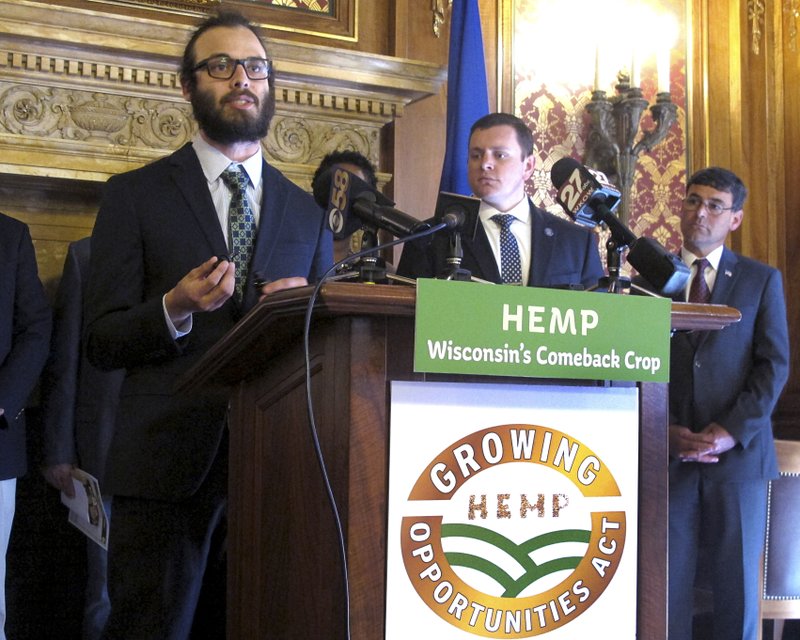Wisconsin
Wisconsin hemp bill draws opposition from law enforcement

MADISON, Wis. (AP) — A bipartisan proposal designed to help Wisconsin’s fledgling hemp industry as it enters its second year faces opposition from law enforcement agencies concerned about a provision that would allow drivers to have THC in their blood.
The bill, heard by a Senate committee Thursday, is broadly designed to help farmers, hemp processors, retailers and consumers as the industry in Wisconsin explodes. In 2018, the first year of the program, Wisconsin issued 250 hemp growing licenses. Interest has skyrocketed this year, with more than 1,400 license applications to grow hemp and nearly 700 to process it, which is up from around 100 last year.
“Hemp is Wisconsin’s comeback crop,” the bill’s lead sponsor, Sen. Patrick Testin, said at a news conference prior to the hearing.
Wisconsin sheriffs, chiefs of police and district attorneys oppose a provision of the bill meant to prevent someone who has consumed a product made with trace amounts of THC, such as the marijuana and hemp derivative CBD, from being charged with operating while intoxicated.
Testin, a Republican, said he expects the provision opposed by law enforcement to be removed and introduced as a separate proposal so that it doesn’t sink the entire measure. He said it was important to raise the issue with law enforcement and to seek a solution for people who legally take CBD products with trace amounts of THC.
Wisconsin is one of 12 states with a zero-tolerance THC law, according to the National Conference of State Legislatures. The proposal would remove THC from the list of restricted controlled substances as applicable to the operation of a motor vehicle, placing Wisconsin law in line with most states.
It also would exclude the trace amounts of THC contained in hemp from the list of controlled substances.
Hemp and marijuana are both forms of cannabis, but hemp lacks enough of the active ingredient THC to get people high. Hemp is bred to contain less than 0.3% of THC, while marijuana seized by federal officials averages about 12% THC. Any hemp crop that is above the 0.3% threshold for THC must be destroyed.
The bill would align Wisconsin’s program with the 2018 federal farm bill’s regulations for growing and processing hemp. It would allow Wisconsin’s Department of Agriculture, Trade and Consumer Protection to maintain control of the state program, rather than have the federal government take it over.
Among other provisions, the bill would prohibit the mislabeling of hemp products. That has become a growing concern as the market explodes for products claiming to be CBD, a non-intoxicating substance found in marijuana and hemp that is used to treat a variety of medical conditions.
In addition to CBD, hemp can also be used to make products such as clothing, rope, food and plastics.
Wisconsin was once one of the nation’s top hemp producers. It produced three-quarters of domestic hemp during World War II before demand plummeted and China took control of the market. Wisconsin created a pilot hemp program last year after the 2014 federal farm bill ended the decades-long ban on hemp.
The bill comes as some in the hemp industry hope that Gov. Tony Evers’ proposal to legalize medical marijuana and decriminalize small amounts of recreational marijuana wins approval from the Legislature. Republicans have already killed the proposal as part of the state budget, but Assembly Speaker Robin Vos has been open to passing a limited version of medical marijuana.
The hemp proposal has a diverse, bipartisan group of rural and urban lawmakers behind it, including Republican state Rep. Tony Kurtz, a farmer who grows hemp on his farm in Wonewoc. Sen. Lena Taylor, a Democrat from Milwaukee, is also a co-sponsor along with Democratic Rep. David Considine, of Baraboo.
Follow Scott Bauer on Twitter: https://twitter.com/sbauerAP







